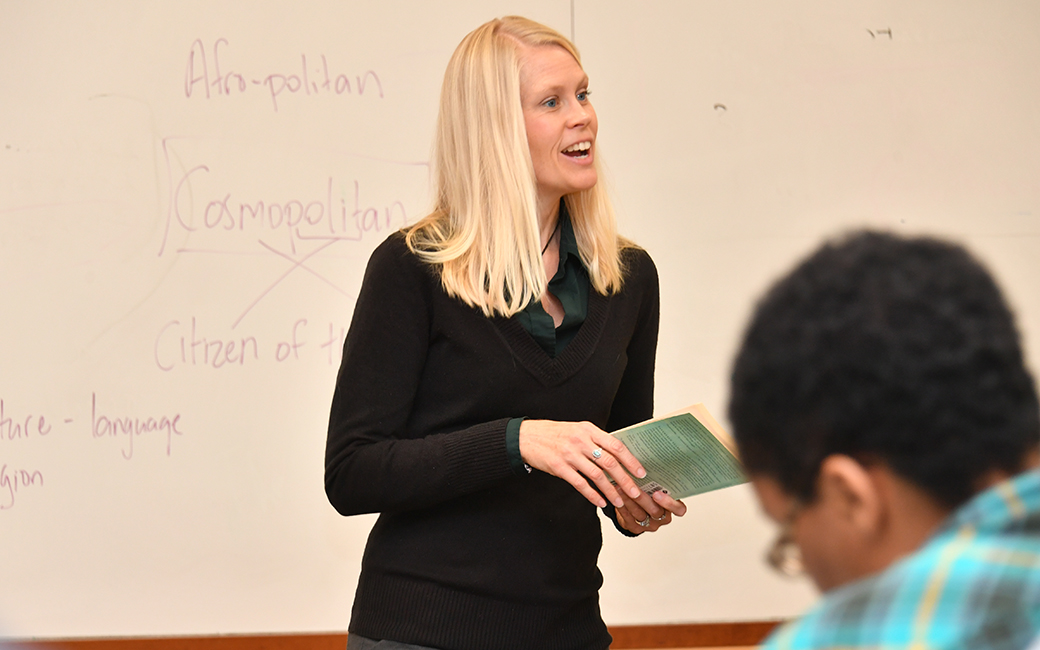Teaching students to be global citizens
“Teaching is our central role as faculty members.”

Putting students first is one of Erin Fehskens’ favorite reasons for working at Towson University.
The professor of English says the that the fact that the university is mid-sized is part of what makes that possible.
“We are bursting with ways that students can get involved on campus and broaden their intellectual careers, but we’re not a gigantic research institution,” Fehskens points out. “Teaching is our central role as faculty members.”
Students in Fehskens’ classes know this is true.
Specializing in postcolonial and world literature, the assistant professor opens readers’ eyes to texts outside the British and American canons — written by authors in regions like Southeast Asia, the Caribbean and Africa.
“ We are bursting with ways that students can get involved on campus and broaden their intellectual careers. ”
Those perspectives provide an opportunity for her to do more than help students understand and appreciate literature.
“I get to push them to think about what it means to be a global citizen,” says Fehskens, “and to take account of the history of the West in relation to the rest.”
Small class sizes in the English department ranging from 18 to 35 students enable her to offer these kinds of in-depth explorations through discussion-based sessions.
A lot of discussion happens outside the classroom, too. As an adviser and mentor, Fehskens works to build relationships with students and helps them find their way.
Whether the question is, “How can I make this argument stronger?” or “Is graduate school right for me?” she is eager to talk it through.
“I love getting to know students,” says Fehskens, “and how they’re thinking about their education.”